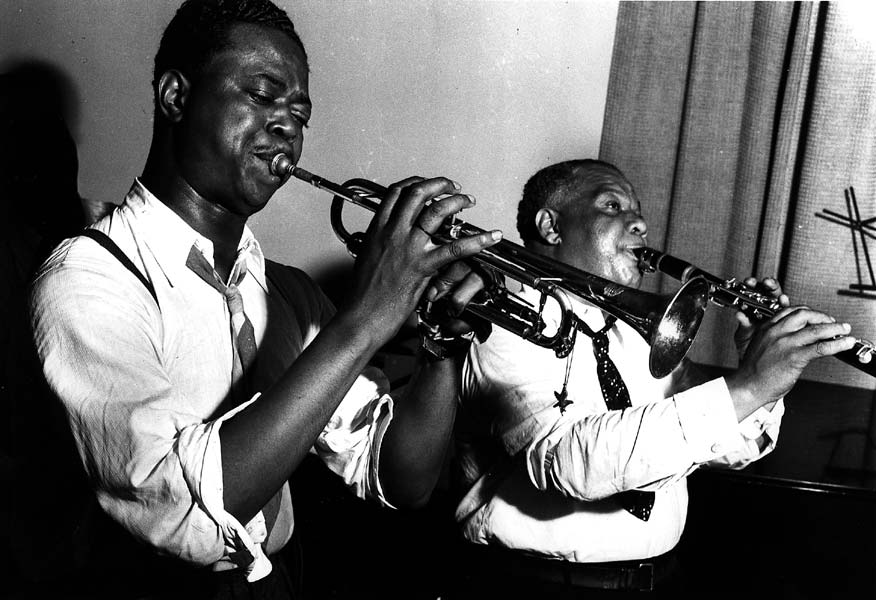How the Idle Mention of a Word in The New Yorker Resounds to a Few Links in the Jazz Chain

I wrote about George Frazier last summer for the NEPR jazz blog. Roger Angell offered this sweet recollection of his friendship with Frazier on The New Yorker’s website on March 2. Angell’s recollection riffs off a story about the word sprezzatura, which John McPhee mentions in a New Yorker article as a word he encountered in a paper submitted by a student in his writing class at Princeton. Neither McPhee nor anyone else in the class knew its meaning. But Angell, whose annual dispatch has put the finishing touch on major league baseball seasons for decades, remembered it as a term commonly employed by Frazier to say that something was cool. Frazier later used the Andulusian word duende to express much the same. Those of us who read his Boston Globe column have fond recollections of the lists Frazier would make of those with and without this quality. Ted Williams had it; Joe Dimaggio did not. Duke Ellington did; Benny Goodman didn’t.

Angell adds that jazz was the connective thread in their friendship. “George and I went back a way, to 1940, when he began writing “Sweet and Lowdown”—the first jazz column in any American newspaper. I was ten years younger, a Harvard junior, and I must have written him a mash note or a minor correction, which brought about a meeting and, somehow, an instant friendship. George—tall and lean, with a slight polio limp—and his wife, Mimsi—major lipstick, great looks, dirty mouth—had an apartment in Cambridge next door to the Harvard Crimson, on Plympton Street, and soon my girlfriend Evelyn and I were staying up late there, drinking and laughing and listening to Roy Eldridge and Billie Holiday and Blind Lemon Jefferson and others to be found on Blue Note and Okeh records. We also became regulars at the Boston jazz clubs, where George knew all the musicians. Our hero was Frankie Newton, a trumpeter with a delicate touch on the mute.”
Dan Morgenstern notes that delicacy in his appraisal of Newton’s work with Art Tatum in a review of the Tatum collection, God Is In the House. “Newton is up to playing with Tatum– his ear is sure enough not to be thrown by the unorthodox backing. On ‘Lady Be Good,’ Newton shows us where Sweets Edison comes from. A master of mutes (including the almost whispery one he plays here), he was one of the three great post-Armstrong trumpeters, along with Roy Eldridge and Lips Page…He was under-recorded throughout his career.”
Newton played plenty hot on occasion, but his subtle approach made him a leading voice in the chamber jazz phenomenon that gained a following in New York supper clubs and cafes in the late ’30s. He worked with John Kirby in 1937, but in typically unlucky fashion, left before the formation of the bassist’s popular Sextet which became famous for swinging the classics (Dvorak and Beethoven) and playing pastel arrangements of jazz standards. Newton then led the house band at Cafe Society, the integrated Greenwich Village nightclub that encouraged progressive politics and showcased Billie Holiday singing the anti-lynching anthem, “Strange Fruit.”
Newton spent long periods playing in Boston venues in the ‘30s and ‘40s, and Frazier touted him in a 1942 column as “second only to Armstrong.” His influence on writers extended to Eric Hobsbawm, the English historian and communist who wrote about jazz under the pen name Francis Newton in homage to the American original whom he much respected as both a trumpeter and fellow traveler. (Click here for a London Review of Books feature on Hobsbawn’s jazz writings; click here for more on the long-deceased Newton’s lingering interest to readers of Hobsbawm.)
Newton played on Bessie Smith’s final recording session in 1933; Maxine Sullivan’s classic “Loch Lomond” in 1937; and was in the band that backed Billie Holiday in 1939 on “Strange Fruit” and “Fine and Mellow.” Like the proletariat he championed, Newton deserved a better hearing. Here he is playing hot with pianist James P. Johnson, guitarist Al Casey, clarinetist Mezz Mezzrow, and saxophonist Pete Brown.